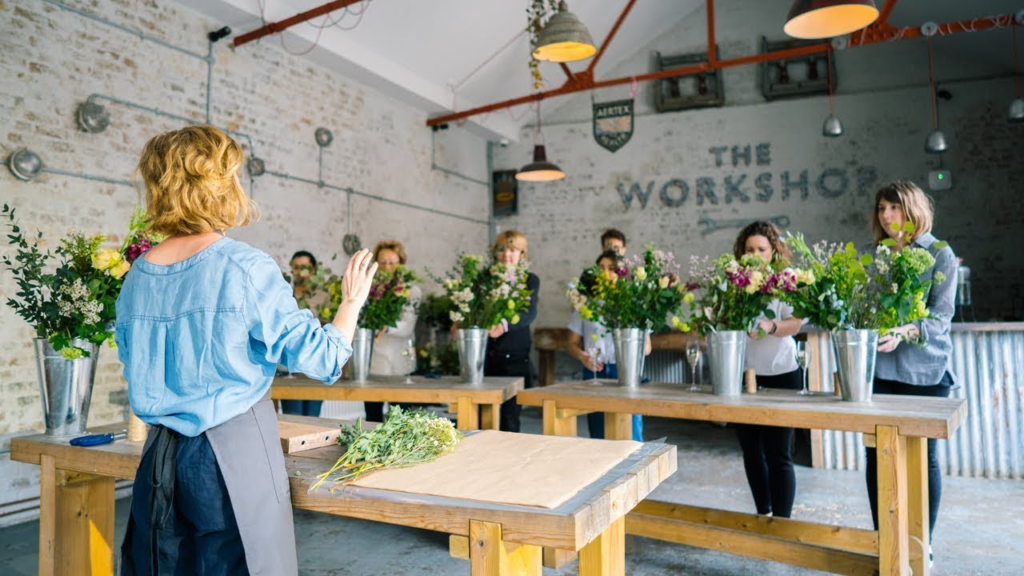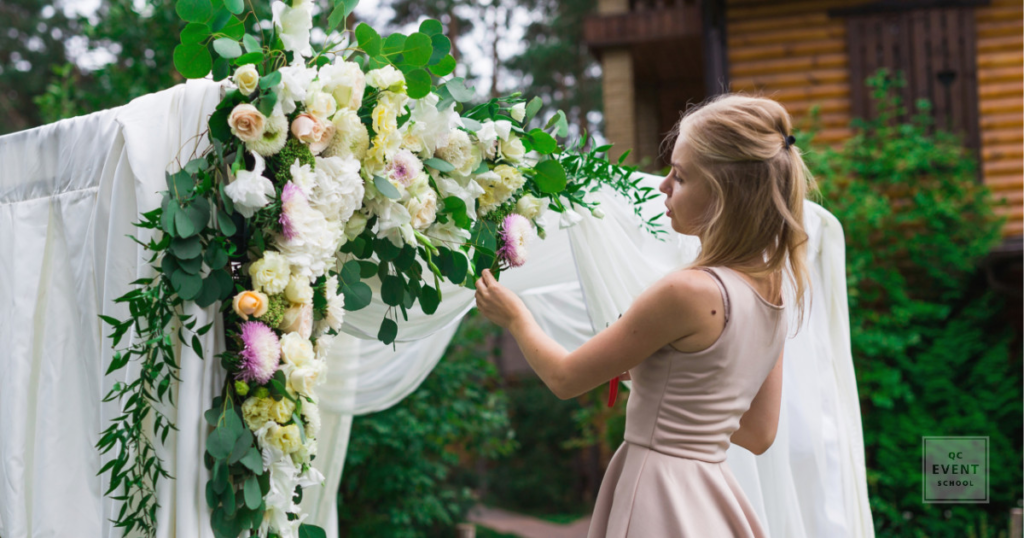Wedding design is an exciting and creative field that allows you to transform ordinary spaces into extraordinary settings for one of the most special days in a couple’s life. Becoming an expert wedding designer takes dedication, skill development, and a passion for creating memorable experiences. In this comprehensive guide, we’ll walk you through the steps and strategies to help you become an expert wedding designer.
Part 1: Education and Skill Development
Step 1: Acquire a Strong Educational Foundation

1.1. Research and Choose a Reputable Wedding Design Course: Start by researching and enrolling in a wedding design course or program offered by reputable institutions. Look for courses that cover various aspects of wedding design, including color theory, floral arrangements, and decor.
1.2. Take Online Classes: If attending a physical school is not possible, consider online courses and tutorials. There are many platforms offering courses related to event and wedding design.
1.3. Attend Workshops and Seminars: Attend workshops and seminars conducted by experienced wedding designers. This will help you learn the latest trends and techniques in the industry.
Step 2: Develop Essential Skills

2.1. Master the Art of Color Coordination: Understanding color psychology and how different hues complement each other is crucial in wedding design. Experiment with color palettes and combinations to build your expertise.
2.2. Learn Floral Arrangement: Floral design is a significant aspect of wedding design. Take courses or practice creating various floral arrangements to enhance your skills.
2.3. Gain Expertise in Decor: Study different decor styles and materials. Experiment with creating unique decor elements to add your personal touch to wedding designs.
2.4. Improve Your Creativity: Wedding design often requires out-of-the-box thinking. Practice brainstorming creative ideas and solutions for unique design challenges.
2.5. Enhance Your Communication Skills: Effective communication with clients and vendors is vital. Develop excellent interpersonal skills to understand and meet your clients’ expectations.
Part 2: Building a Portfolio
Step 1: Gain Practical Experience

1.1. Start as an Assistant: Begin your career by working as an assistant to an experienced wedding designer. This will provide hands-on experience and valuable insights into the industry.
1.2. Volunteer for Events: Offer your services for free or at a reduced rate for friends, family, or local events. This will help you build a portfolio and gain real-world experience.
1.3. Network in the Industry: Attend industry events, join professional organizations, and connect with vendors, photographers, and other wedding professionals. Building a strong network is essential for career growth.
Step 2: Create a Stunning Portfolio

2.1. Document Your Work: Take high-quality photos of the events you design. A professional portfolio is your best marketing tool.
2.2. Diversify Your Portfolio: Showcase a variety of wedding styles and themes in your portfolio to demonstrate your versatility.
2.3. Highlight Your Unique Style: Develop a signature style or niche that sets you apart from other wedding designers.
Part 3: Launching Your Career
Step 1: Establish Your Brand

1.1. Create a Business Plan: If you plan to start your own wedding design business, develop a comprehensive business plan that outlines your goals, target market, and financial projections.
1.2. Choose a Business Name: Select a memorable and unique name for your business that reflects your style and services.
3.3. Build a Website: Create a professional website to showcase your portfolio, services, and contact information.
Step 2: Market Your Services

2.1. Utilize Social Media: Promote your work on social media platforms like Instagram, Pinterest, and Facebook. Post regularly and engage with your audience.
2.2. Collaborate with Wedding Vendors: Partner with other wedding professionals such as photographers, caterers, and venues to expand your reach.
3.3. Seek Reviews and Testimonials: Encourage satisfied clients to leave reviews on platforms like Yelp and Google. Positive feedback builds trust.
Step 3: Continuously Improve and Adapt

3.1. Stay Updated with Trends: The wedding industry evolves constantly. Keep yourself updated with the latest trends and incorporate them into your designs.
3.2. Seek Feedback and Critique: Be open to constructive criticism and feedback. Continuous improvement is key to becoming an expert.
3.3. Invest in Professional Development: Attend advanced courses, workshops, and conferences to further enhance your skills and knowledge.







11 Comments